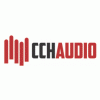Thanks everyone, some great feedback and ideas so far -- definitely some ideas to work with!
I've found various youtube videos to be quite interesting/educational
D'oh, that probably should have been an obvious starting point -- YouTube is often my wife's first port-of-call when wanting to learn something new, but for some reason it just doesn't usually occur to me to look for videos rather than forum topics and written tutorials -- a video with audio is probably quite ideal for learning this sort of stuff though!
Do you have any specific recommendations of channels or YouTubers that stood out as particularly good quality, or any that you would suggest avoiding?
I think I am more "sciency" than "artsy" as a person, but my advice would be to learn about the scientific part of sounds
Great idea! I know some of the basics from what I remember of high-school physics and from what I've learned about this sort of stuff as a musician, but I could definitely benefit from learning more, especially about specific effects that don't necessarily always apply to physical instruments.
Do you have any particular resources you would recommend?
1) Youtube. Folks like SFLogicNinja do some GREAT tutorials on how plugins work.
Excellent, are there any other specific YouTubers or channels you would recommend either as good quality or to be avoided?
Thanks for the SFLogicNinja recommendation and example video!
2) Reading this book: http://www.amazon.com/Audio-Effects-Workshop-Geoffrey-Francis/dp/1435456149
My wife always has trouble finding gift ideas for me, so I'm sure she'll appreciate the gift suggestion for christmas! In the meantime it looks like I have plenty of other material to go on with on YouTube. :)
3) Take private lessons.
A great idea -- I found private lessons extremely helpful when learning to play physical instruments -- but unfortunately I probably don't have the time and money for this at the moment.
I've been a professional audio engineer for about 10 years now and I can say that the best way to learn is to get a project and work on it.
Absolutely! I have no real interest in composing for video games, but I do try to write new music on a regular if infrequent basis.
I suppose you could break down the learning process into recording, mixing/editing, and mastering.
To be honest I'm not entirely clear on the division between these steps having taught myself just messing around with the options and trying to apply some of my more traditional music knowledge. Probably something I should correct! I don't think you really intended it to be a major point in your post, but thanks for highlighting what I think is a very important area to work on!
Thanks also for the specific suggestions about starting with EQ and compression.
If you got specific questions try asking here, you will probably get good answers.
Thanks, I'll be sure to give it a try! :)
I use the presets themselves for learning.
That's probably how I've done most of my learning so far, but it's a good area where a more methodical approach could make a big difference! Thanks! :)
Any further comments or suggestions are most appreciated, thanks for all of the input so far! :)






